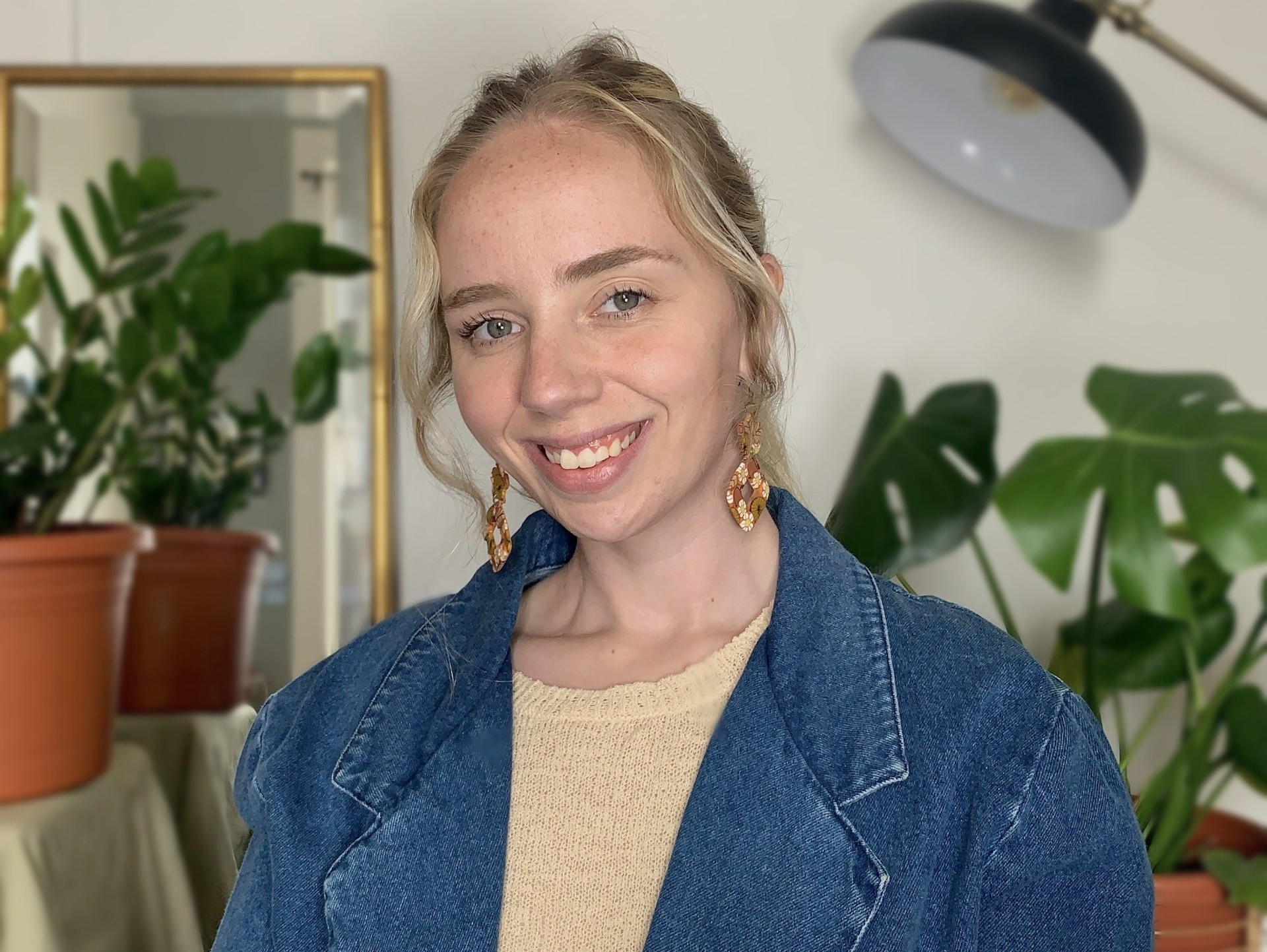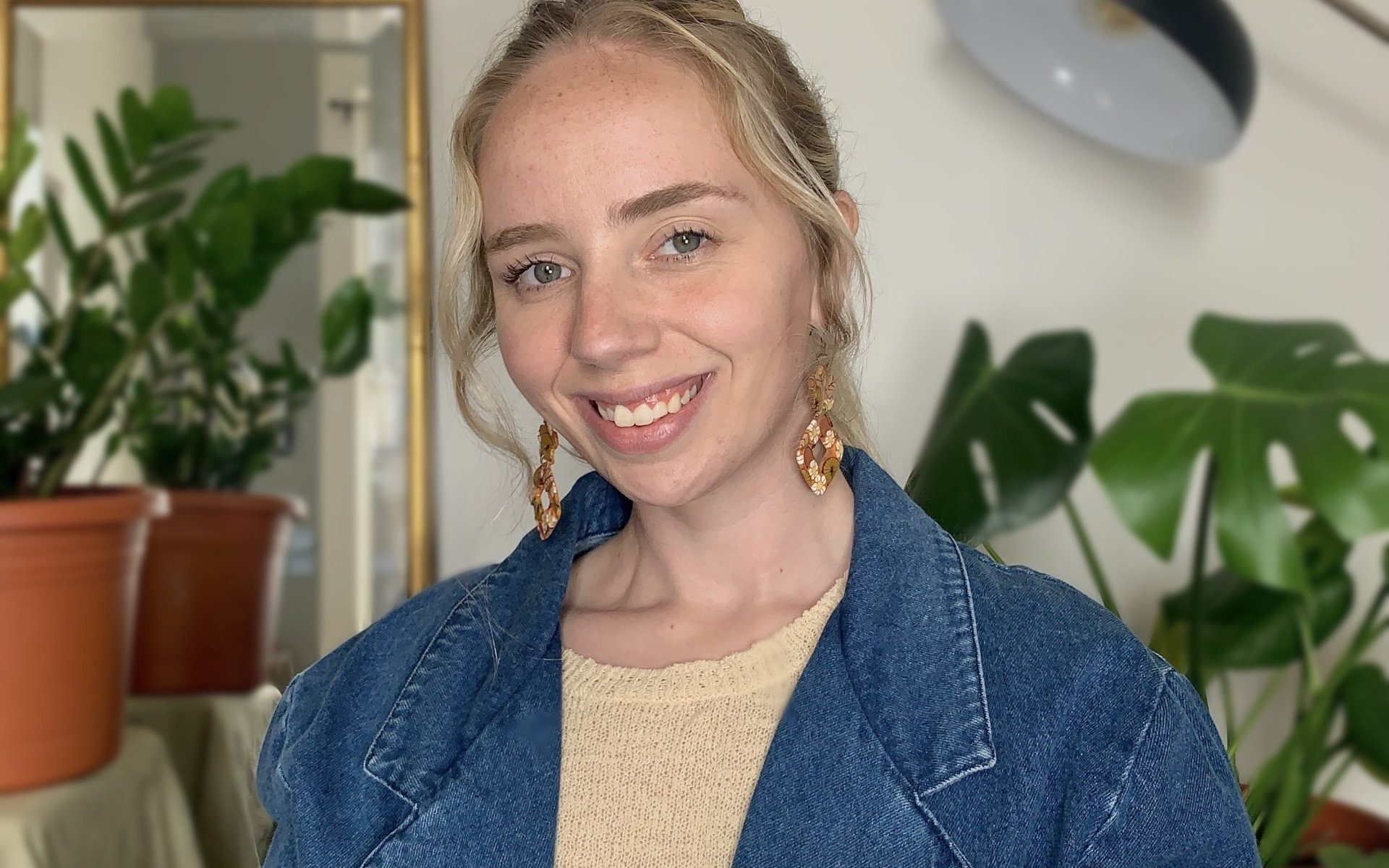The Beacon Blog: Trail Notes
Kendall Keelen’s Trail Notes
Edited by Andrea Salazar and Beckett McGowan
September 29, 2021

Kendall Keelen (VLS JD ’22) had strong women role models in her cousin and mother, who helped her navigate some of her earliest encounters with advocacy and the environment. Kendall’s cousin helped her prepare for a third-grade justice system lesson that made Kendall want to be a lawyer. Armed with hours of preparation, opening and closing statements, a yellow notepad, and an updo, Kendall prosecuted Jack for trespass against the Giant in a mock trial. Kendall described herself as “not the quiet kid” but “definitely not the troublemaker.” “I kept saying Objection!’ in the middle of trial . . . I had said it so many different times that the teacher asked me to stop . . . but I didn’t stop! If I say objection I’m allowed to say why I’m saying objection!” Kendall recalls that the mock trial was the only time her teacher wrote her name on the board. Despite her teacher’s disciplinary warning, Kendall still walked away from the experience with a newfound passion for lawyering.
Growing up, Kendall attributed a sudden increase in roadkill on her town’s highways to the new housing that started replacing the forest. It was this connection that first made her question whether the unfettered housing development was right. When Kendall said the practice made her upset, Kendall recounted her mother’s questions:
Mom: What do you want to do about it?
Kendall: I don’t know what to do.
Mom: Well, who do you think makes those decisions? The Congressman or the President?
Kendall: No, it’s this town.
Mom: Exactly. And who runs the town?
Kendall: The Mayor!
Mom: Okay so what do you think you should do then?
Even though Kendall did not pay a visit to the Mayor, this was her first lesson in a systematic mapping of power dynamics necessary to create changea skill Kendall still uses in her work.
Kendall’s cousin and mother taught her valuable lessons on community and pursuing her interests. Her passion for the law and environment came together in undergrad when Kendall began exploring environmental justice issues. By the time Kendall started looking into law programs, environmental justice was the driving force for her career path.
Kendall recalls a crucial moment in law school when she chose to center multiply-marginalized voices rather than her own. Kendall and Jameson Davis (VLS JD ’21) co-Chaired the Environmental Justice Law Society (EJLS) at Vermont Law School. In an EJLS planning session for an Environmental Justice Symposium, Kendall said “I am, regardless of financial state, a white woman . . . I don’t need to be the center of attention. I am going to be behind the scenes.” Kendall made space for diverse voices to speak at the Symposium, a move her white and white-passing peers followed. When asked, have you ever had to have a tough conversation with someone who wasn’t centering diverse voices, Kendall answered: “the toughest conversation [I had] was with myself, honestly.” Kendall recommends being continuously self-aware of your positionality, at the same time, “do not deflect the hard and meaningful work.”
Kendall’s most recent summer experience was as a Glynn D. Key Fellow at the Southern Environmental Law Center (Center). She brought legal writing and research skills she had honed at Vermont Law School during EJLS, the Climate Justice Practicum, and the Environmental Justice Clinic with mentors like Marianne Engelman-Lado and Amy-Laura Cahn. A tool Kendall swears can reveal a justice angle to any issue is the Environmental Justice Screening and Mapping Tool (EJSCREEN Tool) by the U.S. Environmental Protection Agency. But the best skills she gained derived from the degree of autonomy she had in her projects, thanks, in part, to the empowering and inclusive environment at the Center.
The sense of community Kendall found at VLS helped her find the confidence to be more transparent with others. Asking questions in class and being open about events going on in her personal life translated well to her professional mindset. Addressing mental health in the workplace benefitted the people and projects Kendall worked with.
As a parting note, Kendall recommends networking “just talk to people, they are more than willing to talk to you.” Also remember that “not everyone has the access to the law, which is very important in environmental justice.” From a mentor, Kendall was told “writing and public speaking are up and coming [skills]. . . . We are the legal filters and translators to the public. We have a tendency though to find safety in jargon and security in complexity.” What this means to Kendall is that “in order to move the law” and break down communication barriers “within ourselves” so that “we can better explain them to others.”

